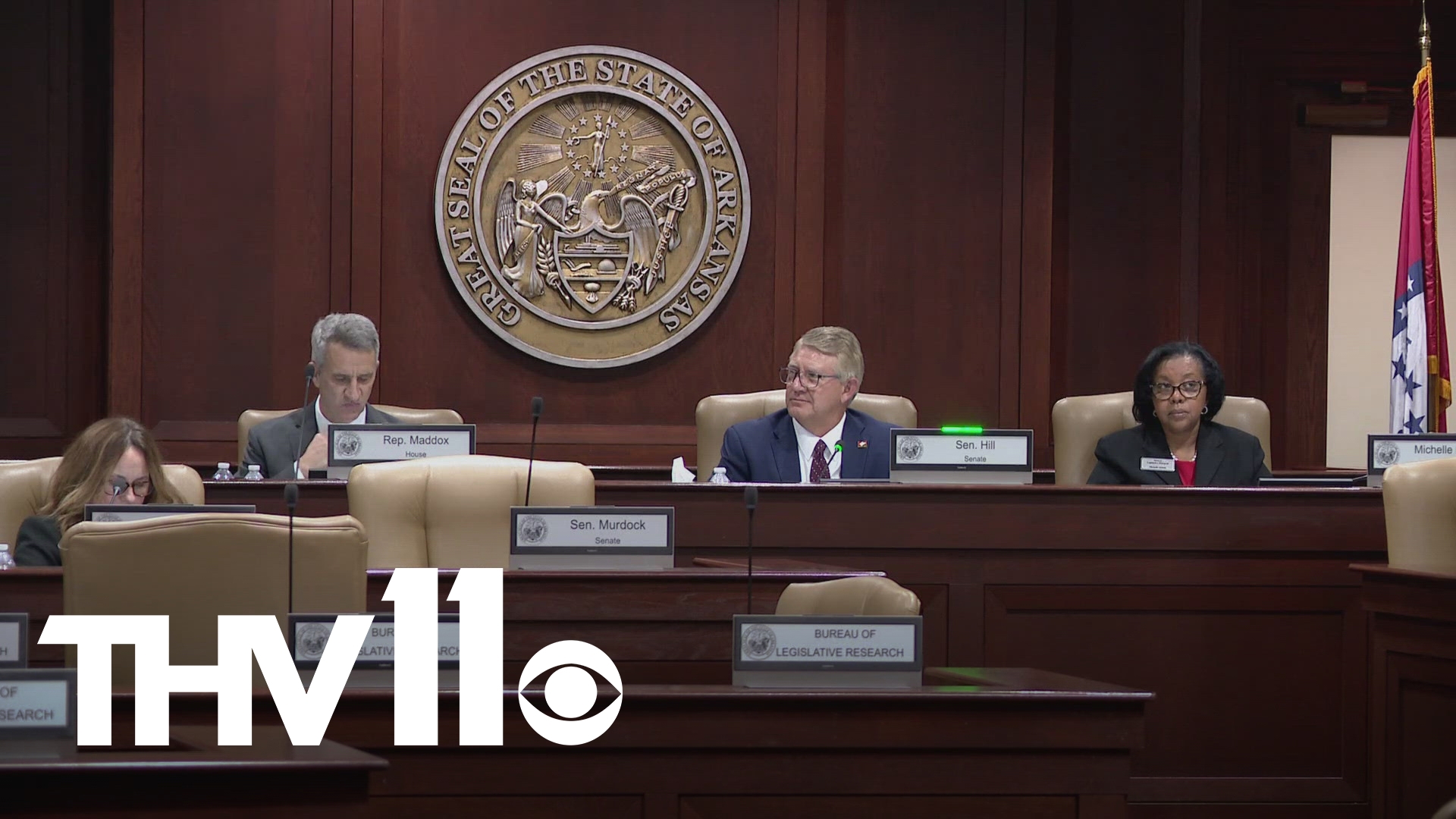LITTLE ROCK, Ark. — While at the Arkansas State Capitol on Monday, both the House and the Senate met to discuss emergency rule 128.
Emergency rule 128 is the Fair and Reasonable Pharmacy Reimbursements, which is the middleman who determines which drugs are covered, how those are compensated, and which pharmacies patients can use.
It was introduced back in September by the Department of Commerce and the Arkansas Insurance Department.
According to the emergency rule system, emergency rules only last 120 days, which means that on January 12, 2025, the rule would expire. So, legislators and the trade groups pushing for this change met on Monday to discuss the fate of the new rule.
In the wake of this rule, both the Arkansas Insurance Department and the Department of Commerce say they have received more data and information when it comes to prescription drug costs from PBMs.
So, with this improvement, their hope is that this will eventually help them set benchmarks and figure out average costs to avoid any more pharmacies going out of business.
John Vinson, CEO of the Arkansas Pharmacist Association explained how he is in agreement with the rule and believes this rule should become permanent.
"I believe when our patients work and pay their hard-earned premiums in, they should be spent on health care and not be spent on middleman profits by trillion-dollar companies that are out of state," Vinson said.
He said that right now they've seen 40 pharmacies close in the last two years and he expects more of the same if the emergency rule doesn't continue.
"I think transparency is key to stopping those monopolistic behaviors that rob patients from accessing their local communities. They lose their pharmacy of choice. Less competition means higher prices and worse service and this rule would support fairness," he said. " So that there's greater competition, which, long run, would stabilize pricing and lower prices for the consumer.
However, many legislators shared concerns with this and explained how they felt this rule would eventually lead to a dispensing fee which would hurt the patient more than the PBM.
Arkansas Senator Jonathan Dismang is one who expressed his opinion as being against the emergency ruling. He said that both the insurance & commerce had the authority to receive the data before this rule change and felt more this was them not doing their job and putting this off.
He also explained how he reads this rule as a lose-lose situation for consumers no matter which way things go.
"The result having to have this dispensing fee falls on the back of the consumer, making the innocent at home pay more to get their prescriptions filled when I look it at this, that's my concern," Dismang described.
Senator Missy Irvin expressed the same concerns and said this penalizes more of the patients than the PBMs.
"Those are the people supporting you so this rule penalizes those people, and my heart goes out to them," Irvin explained.
Vinson completely disagreed with this theory and said approving this rule does the exact opposite.
"There were comments made that this is a tax and that the entire if there are any adjustments, it'll all be paid or be passed on to patients. I completely disagree with that I expect my premiums to be paid for care," he said. "I don't expect for me to pay premiums the middleman to pocket at all and then not pay for care and pass on all the expense of the patient."
The next meeting is set for Thursday, December 19, 2024, at 9:00 a.m.

